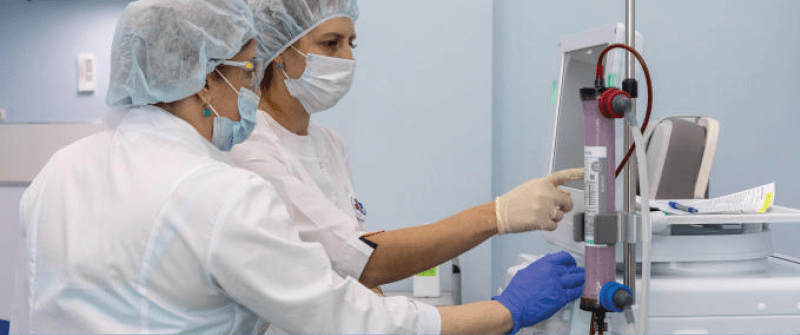The Company’s contribution to the achievement of the UN Sustainable Development Goals
Russian Railways contributes significantly to the UN Sustainable Development Goals in accordance with the nature of its business.
The Group is a founder of 98 educational institutions and operates 25 children’s railways. The Company’s professional training framework relies on 15 education centres. Our Corporate University trains specialists with higher education and secondary vocational education in cooperation with industry-based higher education institutions.
To contribute to the SDG, in 2022 the Company:
- put in place 10 industry-specific on-site training centres (clusters) as part of the Professionalitet federal project, with over 700 sponsored students admitted to training;
- offered its employees over 1,100 courses on a wide variety of topics through the distance learning system;
- established cadet classes at five RZD lyceums, with 96 schoolchildren enrolled;
- upgraded training and laboratory facilities at sectoral universities and their branches, with 16 simulation training facilities equipped to train railway professionals.
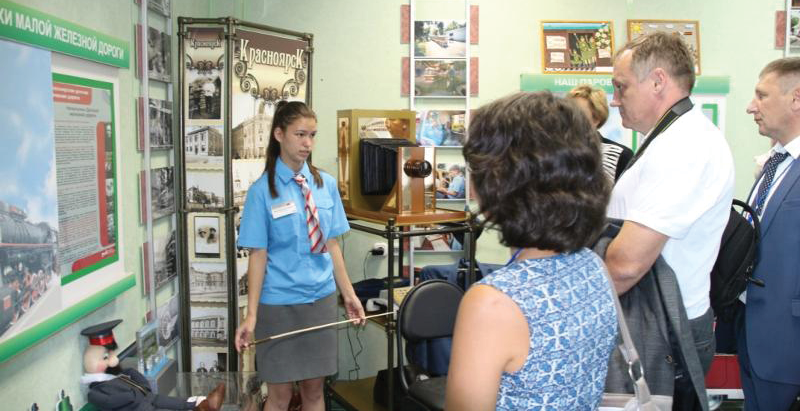
Russian Railways has zero tolerance for any types of discrimination, including gender discrimination, in recruitment, staff development and promotions.
The Company implements the Action Plan to improve the conditions of work, leisure, and social support of women in 2021–2025. Russian Railway consistently expands the list of railway jobs available to women, including managerial positions.
To contribute to the SDG, in 2022 the Company:
- continued efforts as part of the Coordination Council and regional railway coordination councils tasked with improving the conditions of work, leisure, and social support for women;
- held the Forum to Improve the Conditions of Work, Leisure, and Social Support of Women;
- trained 64 women as train drivers and assistant drivers, and offered them employment.
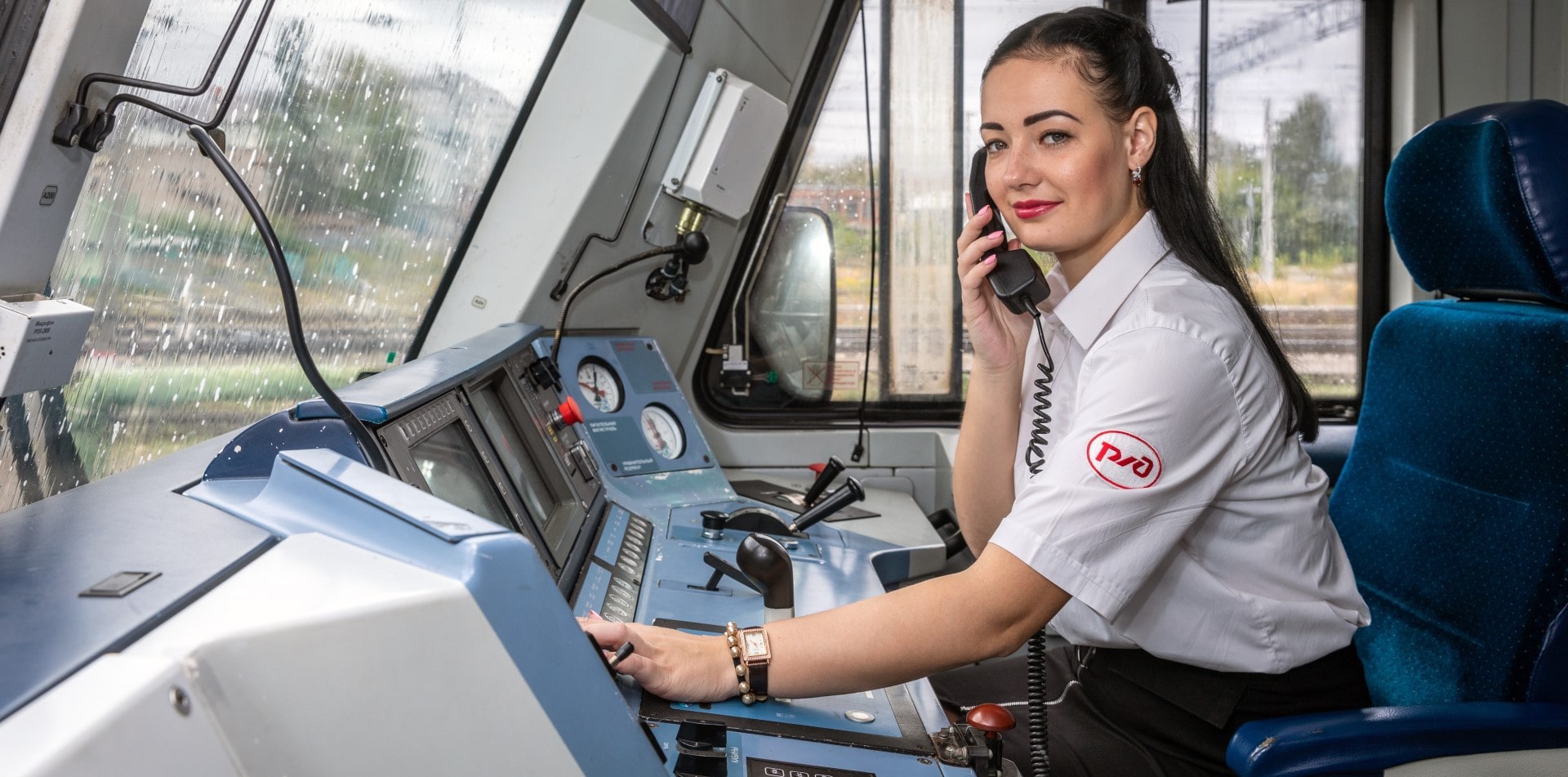
Russian Railways is implementing a Clear Water investment project to upgrade water supply systems and bring the quality of water supplied to consumers in line with the standards set by Russian sanitation and environmental laws.
To contribute to the SDG, in 2022 the Company:
- commissioned five treatment facilities;
- completed a project to launch a mobile facility to treat tank water, spills, and storm drain water contaminated with emulsified and dissolved petroleum products.

Russian Railways is working on transitioning to alternative and renewable energy sources to make the railway transport even more environmentally friendly.
To contribute to the SDG, in 2022 the Company:
- was implementing energy efficiency improvement projects;
- equipped 72 locomotives with the ISAVP-RT-M auto driving system offering a virtual coupling option, upgraded 220 locomotives furnished with the ISAVP-RT system to enable the use of virtual coupling – a wireless inter carriage link technology;
- introduced dispatching services at seven heat supply facilities;
- implemented the Autonomous Energy Supply System project to minimise environmental impacts;
- achieved an actual value of the Energy Efficiency Improvement KPI of 0.6% in 2022, which is in line with the target.
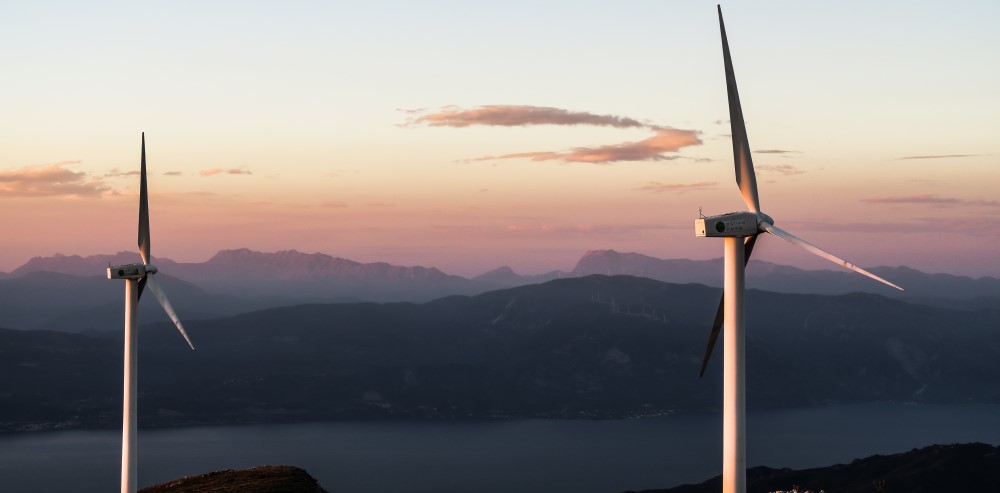
Russian Railways has a Collective Bargaining Agreement covering all of the Company’s employees and runs corporate programmes supporting certain categories of personnel, including young, retired and soon-to-be-retired employees.
To contribute to the SDG, in 2022 the Company:
- signed the Collective Bargaining Agreement of Russian Railways for 2023–2025;
- indexed employee salaries three times (by a total of 14.9%) and increased non-state pensions and zone-specific increments;
- implemented projects to improve labour productivity;
- took measures to reduce youth unemployment rates;
- set up five business incubators for students.
Russian Railways’ investment programme for 2021–2023 is focused on developing and upgrading the railway infrastructure and promoting high-speed and ultra high-speed railway transportation. The Group’s Comprehensive Innovative Development Programme and the Digital Transformation Strategy until 2025 include projects to develop transportation management systems based on artificial intelligence, introduce innovative rolling stock, and other initiatives. The Group promotes partnerships with scientific institutions, manufacturing enterprises, and small and medium-size businesses based on the principle of open innovation.
To contribute to the SDG, in 2022 the Company:
- expanded the portfolio of innovative projects under the Comprehensive Innovative Development Programme until 2025 by 25% vs 2021;
- created regional innovation-driven development centres across the railway network;
- held the annual Russian Railways Innovation Day;
- held the first PRO//Motion. Innovations conference;
- reviewed over 1,900 innovation projects and startups;
- won the BRICS Solutions for Sustainable Development Goals awards in the Technical Innovations and Their Application category for outstanding achievements under the projects Moscow Central Diameters and Reconstruction of the Track Superstructure and Drainage and Transportation Adit of the Severomuysky Tunnel;
- was running the Far Eastern Railway as an Accelerated Development Domain programme.

The Company and its subsidiaries are the main providers of suburban passenger transportation in Russia. They are integrating suburban transport into urban transport systems and actively developing multi-modal routes and transport interchange hubs to enhance the mobility of urban population.
To contribute to the SDG, in 2022 the Company:
- continued developing multimodal routes and transport interchange hubs to enhance the mobility of urban population;
- expanded the network of Lastochka electric trains in the Perm urban agglomeration helping to link some of its remote areas: the satellite city of Krasnokamsk and the Kirovsky, Dzerzhinsky and Ordzhonikidzevsky districts.
- opened a new building of the Toksovo railway station, which maintains the historical look of the station constructed in 1916.
Company divisions use waste disposal technologies to reduce the negative environmental impact of railway industry-specific waste. The Company recognises its environmental and social responsibility and fulfils a self-assumed obligation to ensure selective collection of secondary materials (paper, glass, plastic, and household aluminium waste) in its office buildings and at railway stations.
To contribute to the SDG, in 2022 the Company:
- installed 26 reverse vending machines to collect plastic and aluminium cans at railway stations;
- voluntarily assumed an obligation to ensure selective collection of paper (cardboard), glass, plastic, and household aluminium waste by engaging cleaning and outsourcing companies;
- signed an agreement with the Russian Environmental Operator to implement circular economy principles in the Company.
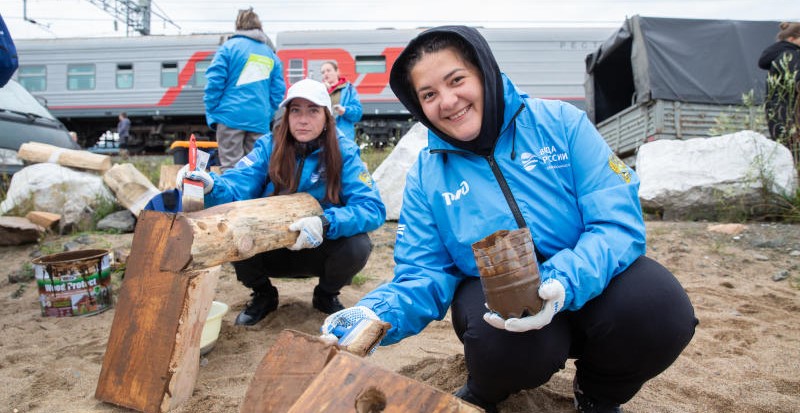
GHG emissions reduction is an integral element of Russian Railways’ Environmental Strategy. To this end, shifting to innovative types of rolling stock and using liquefied natural gas as an alternative energy source for train traction are essential. The Company also pays great attention to climate change risks.
To contribute to the SDG, in 2022 the Company:
- continued shifting to innovative types of rolling stock;
- signed an agreement to set up a Bauman GoGreen consortium with Bauman Moscow State Technical University; as part of the initiative, the Company is looking into potential climate action projects;
- took steps to develop Russian Railways’ Comprehensive Methodology for GHG Emissions Volume Measurement based on international standards and national carbon footprint requirements.

Russian Railways is a major natural resource user operating in Russia. Its environmental impact is associated with the operation of railways, as well as industrial and infrastructure facilities. The Company makes every effort to reduce its environmental footprint, focusing, among other things, on the preservation and rehabilitation of ecosystems.
To contribute to the SDG, in 2022 the Company:
- planted 572,000 trees on a territory that equals 145 football fields;
- delivered on the Action Plan to protect Lake Baikal’s natural territory;
- continued eliminating accumulated environmental damage.
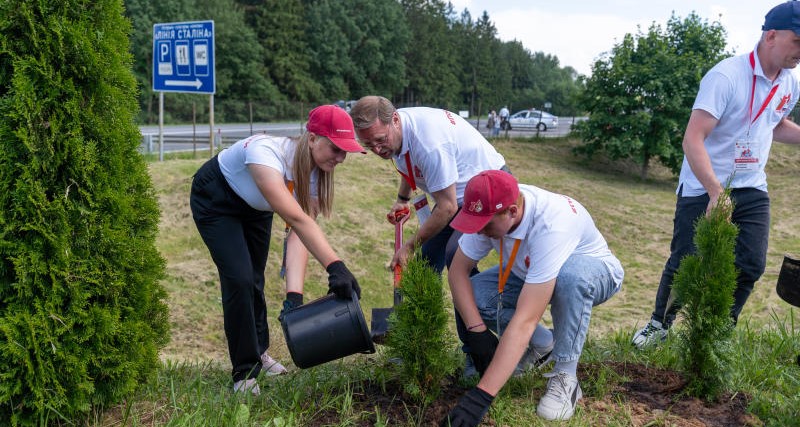
Zero tolerance for corruption in any form or manifestation is indispensable for the Company’s sustainable development. We take all necessary steps to ensure compliance with Russian anti-corruption laws and applicable international requirements.
To contribute to the SDG, in 2022 the Company:
- was for the third year running recognised as one of the best-performing major Russian companies by the Anti-Corruption Rating of Russian Business;
- won the first National Anti-Corruption Compliance Leader award recently established by the RSPP.

The Group’s business abroad helps build long-term partnerships with international organisations and associations, and coordinates interaction with foreign partners with a view to developing Russian Railways’ infrastructure and promoting sustainable development.
The Company’s 2022 SDG contribution:
- its Agroexpress project won the BRICS Solutions for Sustainable Development award for outstanding achievements;
- • its Baikal International School project won the BRICS Solutions for Sustainable Development Goals award in the International Cooperation category for outstanding achievements;
- the Company shared expertise to help develop Rsindex, a universal tool for assessing the contribution of the railway sector to the UN SDGs;
- initiated efforts to improve the legally binding IMO/ILO/UNECE Code of Practice for Packing of Cargo Transport Units by adding a chapter on stowage and securing of cargoes in containers;
- helped the Group develop proposals for the UNECE and OSJD to improve regulatory documents governing transportation of hazardous cargoes and perishable foods to ensure safety of transportation and the lives and health of people;
- continued its activities as part of the UN ESCAP Regional Action Programme for Sustainable Transport Development in Asia and the Pacific (2022–2026).
